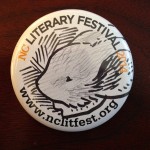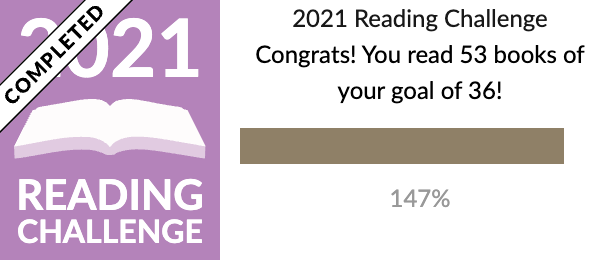Here’s the second part of my day at NC Literary Festival, which includes the two panels I attended. For part one, general thoughts and author sessions, visit yesterday’s post.
The first panel I attended was short-titled Forensics Panel. The official title was “Science Write: Forensic Fact in Fiction.” To be honest, this was the entire reason I attended the event. Forensics? Blood and gore and whodunit and how? Count me in!
And this panel didn’t disappoint. It came complete with a handout of websites for us to check out later if we wanted to read more on any of the topics they would so briefly touch on during the session.
The panel:
- Cat Warren has her own cadaver dog and a book, “What the Dog Knows,” which I intend to pick up soon. If my husband wants to convince me that we need a dog, this is going to be the way. She really stressed the idea that whether it’s fiction or nonfiction, you can’t make this stuff up.
- Deborah Blum is a true crime journalist focused on toxicology and poisons. I also want to read her book, “The Poisoner’s Handbook,” very soon. According to Deborah, most chemicals do no harm but some turn keys in our body. Unlike crimes of passion, the use of poison requires planning and patience – poisoners are calculating and devious. She shared a story of a woman who was charged with attempted murder after planting a garden full of foxglove, waiting for it to grow, then suggesting that her husband would benefit from a nice salad. She made him that salad for dinner but got the dose wrong, resulting in a pumped stomach rather than his death. “Murder has a long shadow,” she said as she talked about the number of people who come back to her years later looking for another explanation.
- Jan Burke has written several books, even winning an Edgar award. She says she looks for the stories of flawed people – perfect crimes don’t give her enough to work with. There has to be a trail for the detective to follow and there must be problems for both the good and bad characters to encounter. She also does a lot of work raising awareness about of the lack of funding for forensic sciences – there are currently over 400,000 untested rape kits in the US because there’s not enough money/staff to test them in a timely manner.
- Lisa Mayhew is a child death investigator. She says she’s generally a happy person because it’s not death that makes her sad but it’s the failure in the system that’s how we got there.
The panel ended with a fictional scenario the women had put together for discussion and some questions from the audience. It was fascinating to hear them all speak about their work and research. I probably could’ve listened to that panel for the entire day. It was a highlight for me as I’ve had to do a lot of forensic research for the novel I’m currently writing. What Cat said at the beginning about “you can’t make this stuff up” is something I’ve been trying really hard to get right with my book. I don’t want to make it up – I want it to be factual and I want it to make sense. This panel was a great reminder of that.
The other panel I attended concerned me a bit at first after my experiences with earlier author sessions. It was the last session I planned to attend and it was called “First Books.” Since there was no description, my assumption (hope? dream?) was that it would be a practical panel about writing your first novel or getting it published. A how-to for those of us who would one day like to be a featured author at an event like this. Instead, I arrived to find three authors who had somewhat recently published their first books offering a reading from their books and then taking audience questions. Would this be another “worship at the feet of the published authors as they congratulate each other on having made it” type of panel?
The panel:
- Megan Mayhew Bergman’s book of short stories, “Birds of a Lesser Paradise,” was published in 2012. I found myself excited for her next book, “Almost Famous Women,” due out in January 2015.
- Kim Church read from her book, “Byrd,” which was just released in the past few weeks. It’s the story of a woman who reunites in her 30s with a man she knew from her childhood and becomes pregnant, giving the child up for adoption without consulting the father.
- Margaret Wrinkle grew up in Alabama and wanted to highlight the racial division she experienced there as a child. Most of her experience has been with film documentaries but she felt that to really bring attention to this issue, she’d need to write a book. She shared two excerpts from “Wash.”
After their readings, the three women asked each other questions in addition to taking some questions from the audience. As opposed to some of the other author panels, they shared a few things that struck me as “new” writers:
- Self-promotion: Megan said it was important to “sell it like the rent was due yesterday.” They all spoke about social media, being genuine, and how it was a matter of give and take with the online community and finding what was comfortable for you. Kim especially said “a book becomes a community” and she found it difficult especially at first to engage that way.
- Support: In addition to family and friends, Kim relies on her writing group. They’re a very encouraging group that don’t just tear her work apart but also support her in carrying on. Having deadlines for sharing with the group helps keep her working. All three also spoke about support from their publishing team and editors and how important it is to find an editor that understands their work. Margaret’s book is full of Southern dialect and she initially had difficulties with the editing process around the dialogue because of that.
- Structure: Kim didn’t trust her first instinct regarding structure and it resulted in rewriting the entire book away from first person narrative in order to tell the story she really wanted to tell. Margaret also had some structural issues in that she theoretically broke rules by switching POV and voice but it was necessary for her story and it worked. However, she still had to spend a lot of time figuring out how the parts fit together.
A final thought: Someone in the audience asked how long each of the authors spent on their first books. Margaret and Kim both spent approximately 10 years. Megan spent less than that because she reached a breaking point and decided she just wanted it done and didn’t care anymore about the public criticism aspect. A follow-up question was asked about how you know that this is the book you should be writing and that you shouldn’t give up on it after all that time. Kim said that it’s a true walk of faith – you have to know that you have something good and it’s a matter of figuring out how you fix it.
As much as I loved the forensics panel, I think that was an important takeaway for me with the book I’ve been working on for so long. I believe I do think I have something good. It’s a matter of figuring out how to make it work and how to fix it.
It’s exciting to me that I found two panels that were so different from each other but both touched on key elements relating to the piece I’ve been working on (not continuously) for such a long time. And so despite a few disappointments I had with the event, this made my day very well spent. I’m excited to return to my writing soon.

















Stacia, I’m so glad you were inspired by our “first books” panel and wish you all the best with your book!